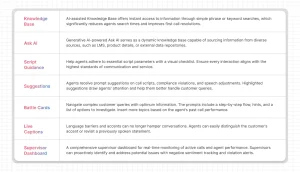Digital Nomad Tax Obligations: Navigating the Global Maze

You’ve traded your cubicle for a co-working space on a beach. Your office view changes with your mood. It’s the dream, right? Well, until tax season rolls around. Then, that dream can feel like a logistical nightmare.
Let’s be honest. Juggling digital nomad tax obligations across multiple jurisdictions is, for most, the single most confusing part of this lifestyle. You’re not just dealing with one tax authority anymore. You’re potentially on the radar of several. But here’s the deal: with a bit of knowledge, you can move from panicked to prepared.
The Core Concept: Tax Residency vs. Physical Presence
Before we dive into the nitty-gritty, you need to grasp this fundamental distinction. It’s the bedrock of everything.
Tax Residency: Your Financial “Home Base”
This is the country that claims the primary right to tax your worldwide income. It’s not necessarily where you were born or hold a passport. Countries use various “tests” to determine this, like:
- The 183-Day Rule: Spend more than 183 days in a country in a tax year, and you’re often considered a tax resident there.
- Permanent Home Test (The “Tie-Breaker”): If you have a permanent home available to you (even if you rent it out), family ties, or economic interests, a country might claim you.
- Center of Vital Interests: Where are your personal and economic relations deepest? Your bank, your doctor, your social life?
You can, surprisingly, be a tax resident of more than one country at the same time. This is where things get… spicy.
Source-Based Taxation: Paying for the Privilege
Even if you’re not a tax resident somewhere, you might still owe money. Many countries tax income earned within their borders. So, if you’re a freelance writer from the US working from Portugal for three months, Portugal may want a slice of the income you earned while physically there. This is a huge pain point for nomads who hop between countries frequently.
Unpacking the US Tax Burden: A Citizen’s Reality
If you’re a U.S. citizen or Green Card holder, you have a unique—and often cumbersome—tax obligation. The U.S. is one of the only countries that taxes based on citizenship, not just residency.
That means no matter where in the world you live, work, or generate income, you must file a U.S. tax return annually. It’s a global income reporting system.
But wait, it’s not all doom and gloom. There are two key mechanisms to avoid double taxation:
- Foreign Earned Income Exclusion (FEIE): This allows you to exclude a certain amount of your foreign-earned income from U.S. tax (for 2023, it was $120,000). To qualify, you typically need to pass either the Bona Fide Residence Test or the Physical Presence Test (330 days in a 12-month period outside the U.S.).
- Foreign Tax Credit (FTC): If you pay income tax to a foreign government, you can use those taxes as a dollar-for-dollar credit against your U.S. tax liability. This is often crucial for higher earners.
For the Non-U.S. Nomad: A Different (But Still Complex) Path
If you’re from almost anywhere else—the UK, Canada, Australia, the EU—your home country typically only taxes you as a resident. Once you sever your tax residency ties (which is a formal process, not just leaving!), you may only be taxed on income sourced from that country.
The trick is proving you’ve cut those ties. This often means selling or renting out your home, closing local bank accounts, and demonstrating a new center of life elsewhere. It’s a high bar, and tax authorities will scrutinize it.
The Digital Nomad Visa Trend: A Tax Silver Lining?
Countries like Portugal, Spain, Croatia, and Thailand are rolling out digital nomad visas. These are fantastic for legal residency, but the tax implications vary wildly.
| Country/Visa | Typical Tax Offer | Key Consideration |
| Portugal (D7/D8) | Potential for NHR (Non-Habitual Resident) regime with flat 20% rate or certain foreign income exemptions for 10 years. | NHR is changing in 2024, so due diligence is critical. |
| Spain (Digital Nomad Visa) | Special tax regime for 6 months to 5 years, with a reduced non-resident income tax rate. | You must not have been a tax resident in Spain for the 5 years prior. |
| Croatia (Digital Nomad Visa) | No income tax for stays under one year if your client is not in Croatia. | This is a huge benefit, but it’s temporary. Long-term stays change the game. |
Honestly, these visas can be a great deal, but you must read the fine print. They can accidentally create a permanent establishment for you, making you liable for local taxes you never expected.
Practical Steps to Untangle Your Tax Web
Feeling overwhelmed? Don’t. Let’s break this down into actionable steps. You know, the “what to do on a rainy Tuesday afternoon” kind of advice.
- Determine Your Current Tax Residency(s): This is step one. Look at the rules for your home country and every country you’ve spent significant time in. Be brutally honest about your days.
- Track Everything. Religiously. Use an app, a spreadsheet, a calendar—whatever works. You need a clear record of:
- Every country you entered and exited, with dates.
- Where your income was earned (by client location and your physical location).
- All business expenses and receipts.
- Understand Your Entity Structure: Are you a sole proprietor? An LLC? A corporation? Each has different international tax implications. An LLC in the U.S., for instance, is often treated as a corporation abroad, which can be… complicated.
- Investigate Tax Treaties: Many countries have Double Taxation Agreements (DTAs). These treaties determine which country has the primary right to tax specific types of income. They are your best friend.
- Consult a Cross-Border Tax Professional: This is not a place to cheap out. A qualified accountant who specializes in expat or digital nomad taxes is worth their weight in gold. They can help you plan and comply, saving you from costly mistakes.
The Final Frontier: Your Mindset
Navigating digital nomad tax obligations isn’t just about forms and numbers. It’s a shift in mindset. You are no longer a passive taxpayer in one system. You are an active global citizen with a portfolio of obligations.
The goal isn’t to evade, but to understand. To be compliant in a system that wasn’t built for your lifestyle. Because that freedom you feel watching the sunset from Bali? It’s even sweeter when you know your financial house is in order, built on a foundation of clarity instead of fear.








